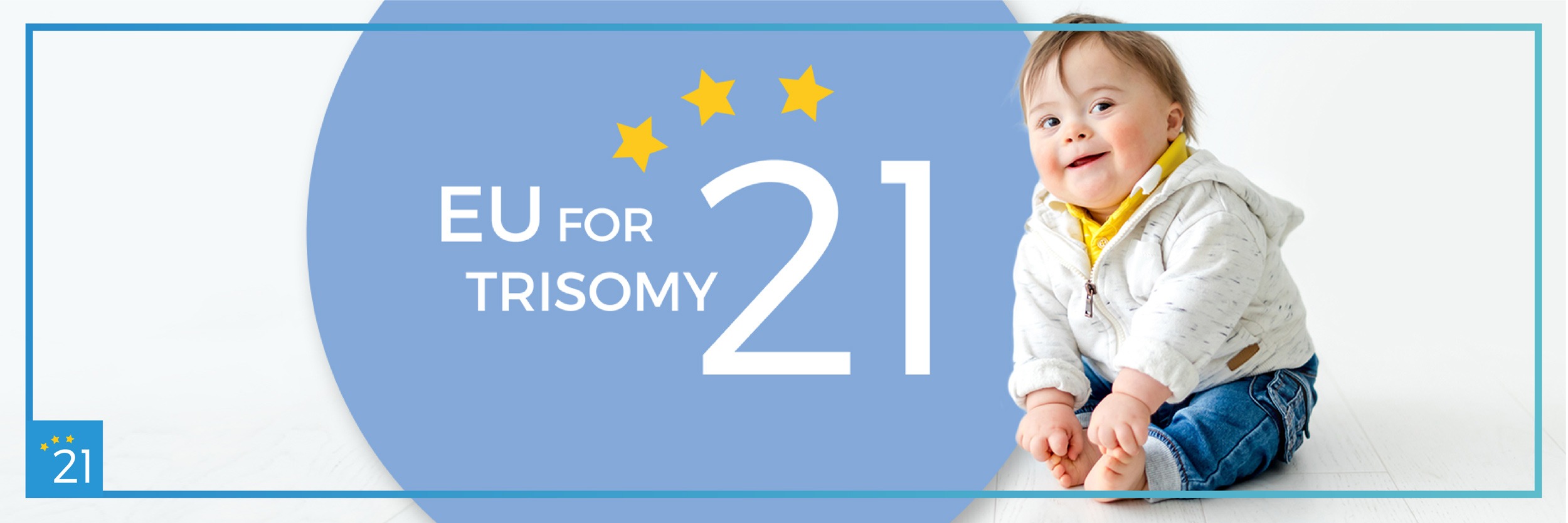
Kas yra ES Trisomy 21?
Asociacijų, piliečių ir politikų, dirbančių kartu švenčiant Pasaulinę Dauno sindromo dieną, bendradarbiavimo platforma, siekiant padaryti matomą intelekto negalią apskritai ir ypač asmenis, sergančius trisomija 21 (dažniausia genetinės kilmės intelekto negalia, dar vadinama Dauno sindromu). ).
EU for Trisomy 21 – tai įvairių organizacijų ir iniciatyvų iš tėvų iš visos Europos tinklas, siekiantis pagerinti Dauno sindromu sergančių žmonių gyvenimą vietos lygmeniu. Tikimės sujungti šias organizacijas, kad paskatintume bendradarbiavimą ir keitimąsi geriausia praktika, sujungdami jas pagal ES Trisomy 21 skėtį, kad galėtume bendrai pasisakyti už Trisomy 21 ES institucijose.
Europos Sąjunga turi teisinę kompetenciją rengti teisės aktus, sprendžiančius problemas, susijusias su žmonėmis su negalia: Sveikata, Užimtumas, Diskriminacija, Švietimas, Žmogaus teisės... Tačiau kiekvienais metais biudžetai ir europiniai projektai, susiję su sutrikusio intelekto žmonėmis, mažėja arba stagnuoja.
Mūsų aljansų tikslas yra pagerinti Autonomija, Matomumas, Sveikata ir Vienodas traktavimas žmonių, sergančių trisomija 21, visoje visuomenėje ir verčia ES institucijas remti labiausiai pažeidžiamus iš mūsų.
Ką daro ES dėl trisomijos 21 nori?
Norime, kad sutrikusio intelekto žmonių poreikiai taptų prioritetu Europos darbotvarkėje, kad būtų užtikrinta reali piliečių lygybė.
Matomumas
Neįgaliųjų nėra politinėje aplinkoje, jų nėra darbo rinkoje ir žiniasklaidoje. Jei žmonių su negalia nėra visuomenėje, neįmanoma sukurti reikiamų pokyčių.
Nediskriminavimas
ES kovos su diskriminacija įstatymai pastaraisiais metais nuėjo ilgą kelią įvairioms mažumų grupėms, išskyrus neįgalius žmones. Žmonėms, turintiems proto negalią, reikia tam tikrų būstų, kad šie įstatymai ir jurisprudencija juos apsaugotų ir ne tik teoriškai.
Sveikata
Europos Sąjunga, siekdama užtikrinti jų teisę į „aukštą žmogaus sveikatos apsaugos lygį“, kaip nustatyta Europos Sąjungos pagrindinių teisių chartijoje, turi veikti kuo labiau sutrikusio intelekto žmonėms.
Autonomija
Norėdami garantuoti intelekto negalią turinčių asmenų nepriklausomybę ir pasirinkimo laisvę, turime skatinti jų savarankiškumą. Šiuo tikslu ES turi skatinti medicininių tyrimų programą, kurios tikslai būtų terapiniai, ir įtraukiančius novatoriškus socialinius projektus, integruojančius visuomenėje jų įvairovę.